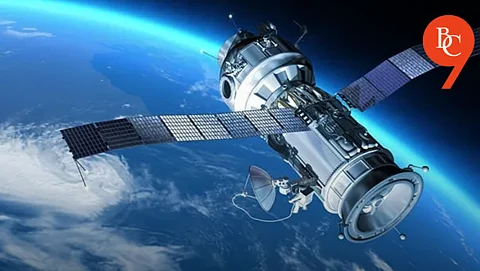

The Indian Space Research Organisation (ISRO) has announced plans to launch 52 advanced spy satellites over the next five years. This bold initiative is set to revolutionize India’s surveillance, defense, and disaster management capabilities, positioning the nation as a formidable force in the global space and intelligence arena.
The upcoming launches, scheduled from 2025 to 2030, will see ISRO deploying a sophisticated constellation of satellites equipped with cutting-edge imaging, radar, and electronic intelligence (ELINT) technologies. These satellites will orbit at various altitudes—ranging from low-Earth to geostationary orbits—providing India with round-the-clock, high-resolution coverage of its borders, maritime zones, and strategic assets.
According to ISRO sources, the new fleet will include a mix of optical, infrared, and synthetic aperture radar (SAR) satellites, enabling all-weather, day-and-night surveillance. The satellites will be capable of tracking troop movements, monitoring military installations, detecting missile launches, and even identifying illegal activities such as smuggling and unauthorized border crossings.
The primary objective of this massive deployment is to bolster India’s national security. With ongoing regional tensions and evolving security threats, real-time intelligence from space has become indispensable for the armed forces and intelligence agencies. The new satellites will provide actionable data to the Indian Army, Navy, Air Force, and agencies like the Research and Analysis Wing (RAW) and National Technical Research Organisation (NTRO).
Beyond defense, these satellites will play a crucial role in disaster management. Their advanced sensors can detect natural disasters such as cyclones, floods, and forest fires, enabling rapid response and resource deployment. High-resolution imagery will also support agricultural planning, urban development, and environmental monitoring, making the initiative a game-changer for civilian applications as well.
ISRO’s ambitious plan showcases India’s growing expertise in space technology and self-reliance in defense manufacturing. The satellites will be built using indigenous components and advanced miniaturization techniques, allowing for more payloads per launch and cost-effective deployment. ISRO will leverage its proven PSLV, GSLV, and upcoming SSLV launch vehicles, ensuring a robust and reliable launch schedule.
In addition, the integration of artificial intelligence and machine learning algorithms will enable automated analysis of satellite data, speeding up threat detection and decision-making processes for defense and disaster response agencies.
India’s move comes at a time when space is increasingly recognized as the new frontier for intelligence and warfare. With major powers like the US, China, and Russia investing heavily in space-based surveillance, ISRO’s initiative ensures that India remains competitive and self-sufficient in the domain of space intelligence.
This massive satellite network will not only deter adversaries but also enhance India’s standing as a responsible space power, capable of contributing to international disaster relief and environmental monitoring efforts.
